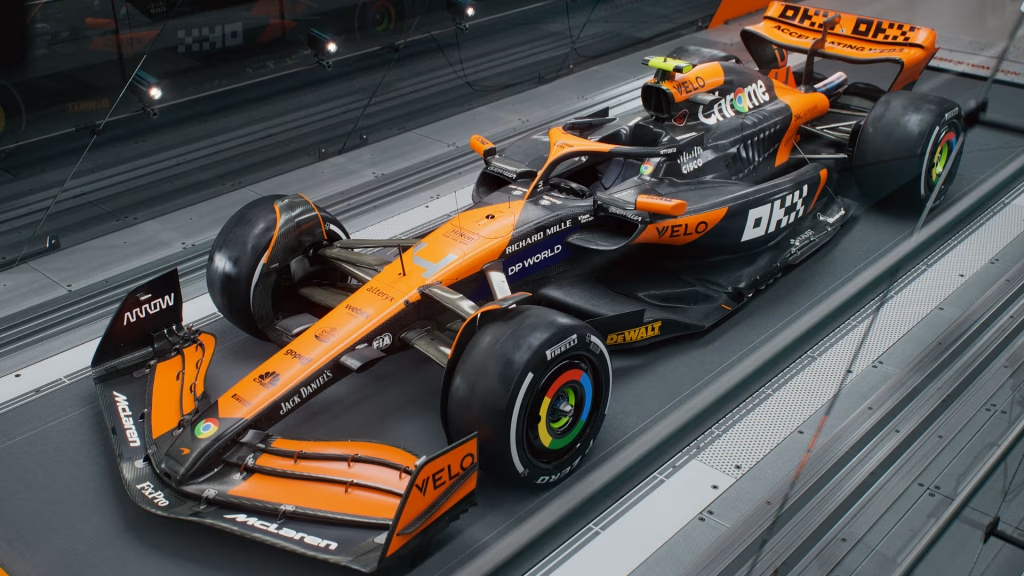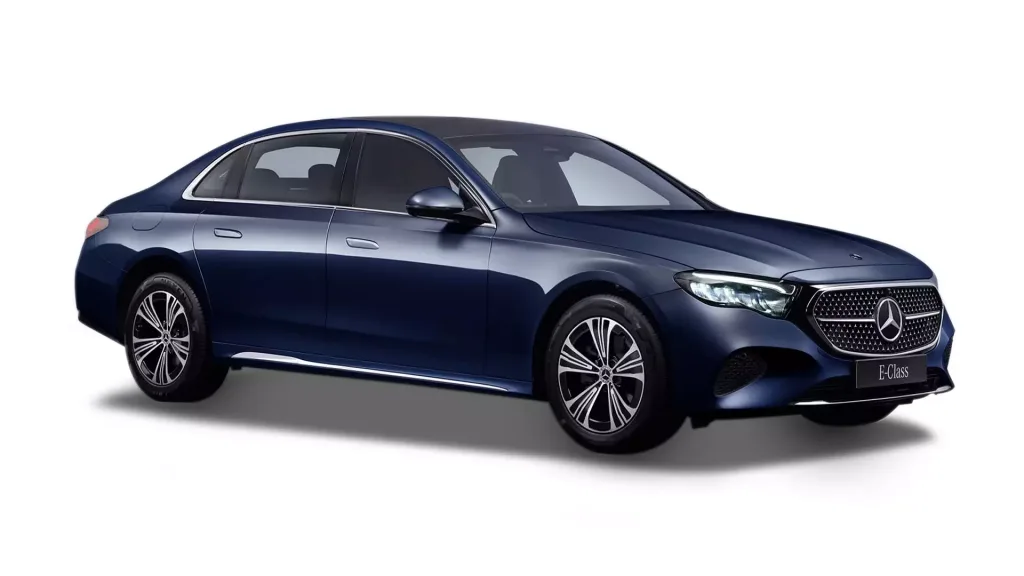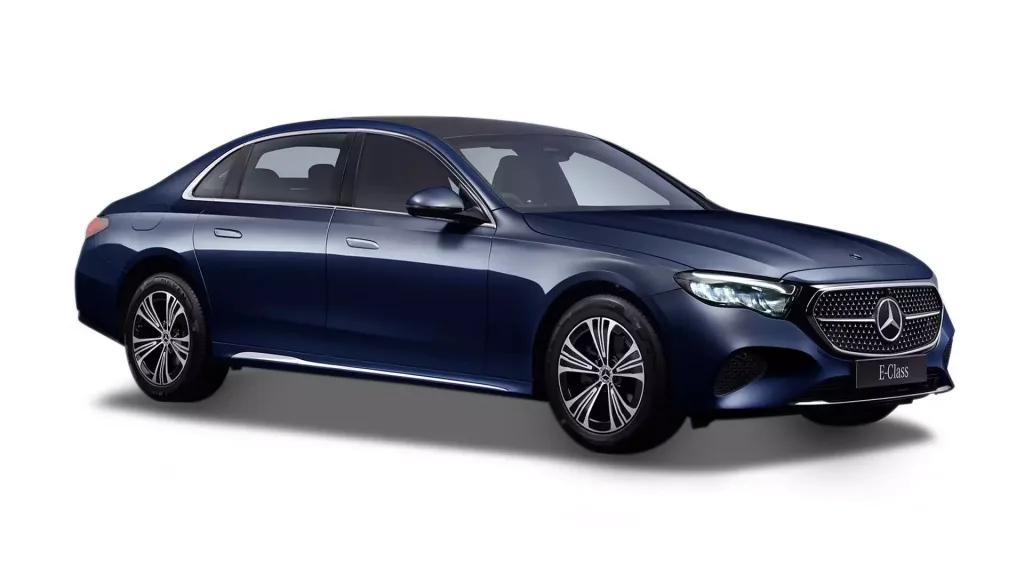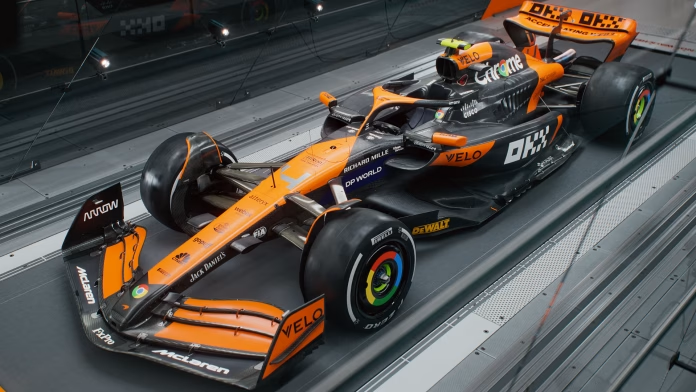In a groundbreaking partnership that bridges the worlds of high-performance motorsport and sustainable electric mobility, Formula 1 and Mercedes-Benz collaborate to introduce a revolutionary solid-state battery. This cutting-edge technology, now being tested in a modified EQS sedan, promises to redefine the future of electric vehicles (EVs) with 25% longer range, enhanced safety, and unmatched efficiency.
This collaboration highlights the power of cross-industry innovation, combining the engineering expertise of Mercedes AMG High Performance Powertrains (HPP), known for their Formula 1 dominance, with the advanced battery technology of Factorial Energy. Together, they are setting a new benchmark for EV performance and sustainability.
What Makes This Solid-State Battery a Game-Changer?
Solid-state batteries are a significant leap forward in EV technology. Unlike traditional lithium-ion batteries that use liquid electrolytes, solid-state batteries employ a solid electrolyte. This allows for the use of lithium-metal anodes, which dramatically increase energy density while reducing weight and improving safety.

Here’s why this innovation is a game-changer:
- 25% Longer Range: The new battery extends the EQS’s range to over 1,000 km (620 miles) on a single charge, making range anxiety a thing of the past.
- Enhanced Safety: The solid electrolyte eliminates the risks associated with liquid electrolytes, such as leaks or fires, while pneumatic actuators manage cell expansion during charging and discharging.
- Lightweight Design: By increasing energy density to 450 Wh/kg at the cell level, the battery delivers more power without adding extra weight.
- Passive Cooling: Unlike traditional batteries that require complex cooling systems, this design uses passive cooling, improving energy efficiency and reducing overall vehicle weight.
Formula 1 Technology Meets Electric Mobility
The collaboration between Formula 1 and Mercedes-Benz is a testament to how motorsport innovation can drive advancements in everyday technology. The solid-state battery integrates engineering expertise from Mercedes AMG HPP, the team behind Mercedes’ Formula 1 success, into the world of EVs.
This partnership also leverages the FEST® solid-state platform developed by Factorial Energy, a leader in next-generation battery technology. Since 2021, Mercedes-Benz and Factorial Energy have worked together to bring this innovation to life, culminating in the first-ever road tests of a lithium-metal solid-state battery in a production vehicle.

The Test Vehicle: A Glimpse Into the Future
The prototype vehicle for this groundbreaking technology is a modified Mercedes-Benz EQS, a luxury electric sedan. This test vehicle features several innovative design elements, including:
- Floating Cell Carrier: This unique design compensates for material expansion during charging cycles, ensuring consistent performance and extending battery lifespan.
- Optimized Weight Distribution: The lightweight battery design enhances the vehicle’s overall efficiency and driving dynamics.
- Passive Cooling System: By eliminating the need for active cooling, the battery reduces energy consumption and simplifies the vehicle’s design.
These features not only improve the performance of the EQS prototype but also provide a glimpse into the future of electric mobility.
Industry Leaders on the Collaboration
The partnership between Formula 1 and Mercedes-Benz has been hailed as a historic milestone in the EV industry.
Markus Schäfer, CTO of Mercedes-Benz Group AG, shared his excitement:
“Developing an automotive-scale solid-state battery underlines our commitment to innovation and sustainability. We’re excited to announce that we’ve started road testing with a prototype vehicle equipped with this advanced technology.”
Similarly, Siyu Huang, CEO of Factorial Energy, emphasized the significance of this achievement:
“Being the first to successfully integrate lithium metal solid-state batteries into a production vehicle platform marks a historic achievement in electric mobility. Our collaboration with Mercedes-Benz proves that the future of electric vehicles is not just a vision, but a reality we’re delivering today.”

Why This Collaboration Matters
The partnership between Formula 1 and Mercedes-Benz is more than just a technological breakthrough—it’s a step toward a more sustainable future. By combining the high-performance engineering of motorsport with the practicality of EVs, this collaboration is paving the way for a new era of electric mobility.
Over the coming months, Mercedes-Benz will conduct extensive laboratory and road tests to evaluate the battery’s performance, safety, and potential for integration into future production models. If successful, this innovation could set a new standard for EV batteries, making them safer, more efficient, and capable of delivering longer ranges.
The Future of Electric Vehicles
As Formula 1 and Mercedes-Benz collaborate to push the boundaries of EV technology, the implications for the automotive industry are profound. This partnership demonstrates how innovation in one field can drive progress in another, creating a ripple effect that benefits consumers, the environment, and the industry as a whole.
With the promise of longer ranges, improved safety, and greater efficiency, solid-state batteries could soon become the gold standard for electric vehicles. And with leaders like Mercedes-Benz and Factorial Energy at the forefront, the future of electric mobility looks brighter than ever.
Final Thoughts
The collaboration between Formula 1 and Mercedes-Benz is a shining example of how cross-industry partnerships can drive meaningful innovation. By combining the best of motorsport engineering with cutting-edge battery technology, they are not only redefining what’s possible for EVs but also setting the stage for a more sustainable future.
As road tests continue and the technology evolves, one thing is clear: the partnership between Formula 1 and Mercedes-Benz is more than just a collaboration—it’s a revolution in the making.
Also read- Flagship Xiaomi SU7 Ultra to be unveiled on February 27th
FAQS
What is the collaboration between Formula 1 and Mercedes-Benz about?
The collaboration focuses on integrating Formula 1 technology with electric vehicle (EV) innovation. Mercedes-Benz, along with its Formula 1 engineering division, Mercedes AMG High Performance Powertrains (HPP), has developed a solid-state battery for EVs. This battery is being tested in a modified EQS sedan and promises longer range, improved safety, and greater efficiency.
What is a solid-state battery, and why is it important?
A solid-state battery uses a solid electrolyte instead of the liquid electrolyte found in traditional lithium-ion batteries. This allows for the use of lithium-metal anodes, which significantly increase energy density, reduce weight, and improve safety. Solid-state batteries are considered the future of EV technology because they offer longer driving ranges, faster charging, and enhanced safety.


